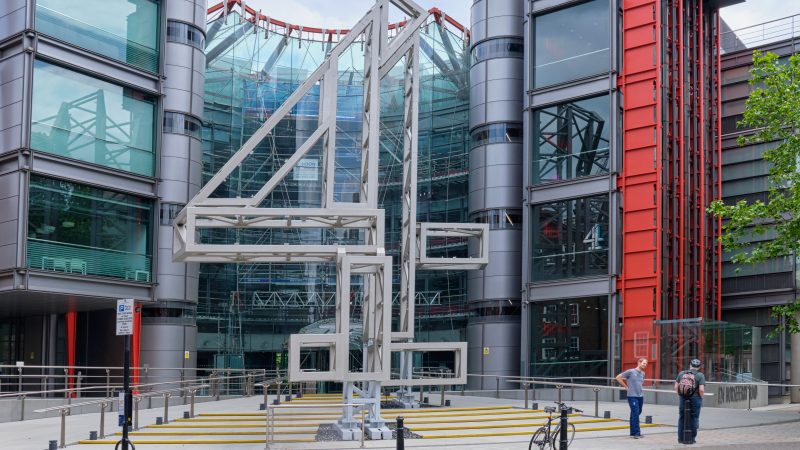
The government has confirmed plans to privatise Channel 4. Following months of debate over the outlet’s future, ministers outlined their final decision on Monday. Nadine Dorries tweeted that government ownership is “holding Channel 4 back from competing against streaming giants” and that a change of ownership will give the channel “the tools and freedom to flourish and thrive as a public service broadcaster long into the future”. The Culture Secretary’s argument rests on a deeply-held ideological belief in competition and applying that to a rapidly changing media landscape.
John Whittingdale said in a speech to the Royal Television Society’s Cambridge Convention last September that Channel 4 will need additional funding to grow, otherwise it “won’t have the money to invest in technology and programming, and it won’t be able to compete with the streaming giants”. The then media minister argued that the taxpayer should not be expected to cover the costs and that funding should instead come from private investment, which the sale of Channel 4 would seek to unlock. He asked critics to offer an alternative approach, stressing that “standing still” would be “an act of self harm”.
Former Channel 4 editor-at-large Dorothy Byrne said the government’s argument “doesn’t stack up” because Channel 4 exists to provide a “public service to the people of Britain” – not compete with streaming services. Other critics of the sale will worry the government more than Byrne, already something of an enemy of Boris Johnson’s government after branding the Prime Minister a “known liar” and a “coward”. Former Culture Secretary Jeremy Hunt said he was not in favour of the sale and he never considered privatisation while in post. Tory MP Damian Green argued that the sale suggested politicians and civil servants think they know “more about how to run a business than the people who run it”.
An interesting intervention came from Tory culture select committee chair Julian Knight, who asked whether the sale is “being done for revenge” for “biased coverage” and “personal attacks” on the Prime Minister. In addition to Byrne’s comments about Johnson, the network has received criticism from the Tories over its perceived lack of impartiality. The decision by Channel 4 News in 2019 to replace Johnson with a block of melting ice when he refused to appear in a climate change debate infuriated the Conservative leadership, resulting in threats to review the channel’s broadcasting remit. Dorries’ campaign against “left-wing snowflakes” in the creative industries is well-known, throwing into doubt the justification of the sale as an exercise in promoting competition.
But what does the sale mean for Channel 4? Dorries has a notoriously sketchy understanding of how Channel 4 works – as shown last year when she was publicly corrected on her false claim that Channel 4 receives licence fee money. Channel 4 is publicly owned – for now at least – but does not receive any money from taxpayer, instead deriving the majority of its revenue from advertising. Former Channel 4 exec Byrne said what we were all thinking: “How can a woman who didn’t even know what the organisation’s business model was claim to be motivated by protecting its finances?”
The creator of The Big Breakfast Charlie Parsons argued that a privatised channel would likely have fewer production companies and “wouldn’t have any reason to develop the sector”. Tory peer Ruth Davidson shared Parsons’ concerns, arguing that, for this reason, the sale was the “opposite of ‘levelling up'”. Dorries has tried to push back on this, saying that the sale could be a means of “levelling up the creative sector” by “putting money into independent production and creative skills in priority parts of the country”.
The media landscape is changing, to which everyone is trying to adapt. Channel 4 has engaged positively with the government on how it can continue to provide its service in a financially sustainably way without being privatised. In a statement on Monday, the outlet said it had presented the government with “a real alternative” that would ensure future financial stability and allow it to do “significantly more for the British public”. Channel 4 is clearly up for change.
But the change that the Tories are proposing fundamentally misunderstands what makes the outlet great: its ability to nurture British production talent up and down the country. What will the priorities of a privatised Channel 4 be? Supporting the development of the industry in left-behind regions, discovering new production talent – or ensuring bumper stakeholder returns? I think we know enough about big business to assume it will be the latter.



More from LabourList
Exclusive: Poll shows Starmer more trusted than PM on Middle East crisis
Revealed: Poll shows 1 in 4 Tory voters says Rayner faces ‘smear campaign’
‘Ignore the noise – the soft left is alive and well in Open Labour and beyond’